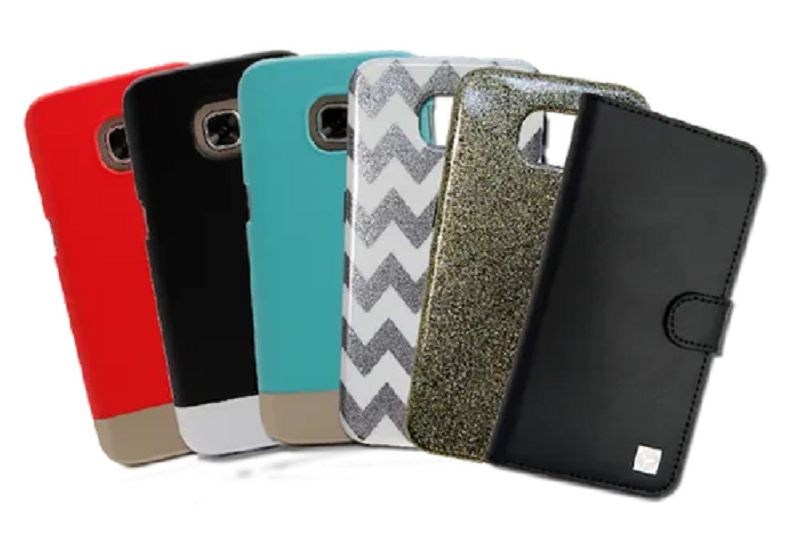Smartphone Cover And Case
Recently I saw some blogs on the protection of smartphones. Both smartphone cases and covers have been discussed in several blogs. There are NO iPhone covers available on Apple’s official website, only iPhone cases. I’m perplexed because the main headline of this article is “iPhone covers,” and “case” is mentioned all over the place.
In my opinion, cases may protect smartphones even if they don’t cover them, whereas covers are used to cover the complete smartphone but play little to no role in its protection.
Difference Between Cases & Covers
1. Grip: Since the backs of many high-end smartphones are constructed of slick plastic or glass, gripping them isn’t always easy or comfortable. The majority of cases are made to be comfortable and grippy in hand. The phone is now simpler to use and less prone to fall.
2. Drop resistance: It’s always preferable to have a case if you’re concerned about shattering your phone’s screen. Some cases, such as those from OtterBox and LifeProof, are constructed from heavy-duty materials and have very pronounced side bumps. It implies that dropping a phone from vast heights won’t harm it.
3. Personalization: Similar to how clothes express your personality or sense of style, your phone case may do the same. With numerous well-known media brands and well-known designers selling branded cases, they have evolved into a fashion statement.
How To Prevent Scratches & Cracks?
On the other side, tempered solid glass protectors can keep your phone from getting hurt after a severe fall. However, some phone cases might not fit them due to their broad profiles.
The responsiveness of the touch screen may potentially be a problem. It is particularly true for gadgets with in-display fingerprint sensors because they frequently stop functioning when covered in toughened glass.
Screen protectors come in a variety, just like cases. For instance, privacy screens minimize viewing angles to shield your device from prying eyes. Additionally, matte screen protectors are available, which lessen the glare from harsh sunlight.
Which Should You Purchase?
Depending on how much security for your phone, you should get one of these.
For most folks, a quality case is a wise choice. If you drop your phone frequently, you can’t go wrong with a strong case and tempered glass screen protector.
If you want to keep your phone’s original appearance while yet getting protection, consider a clear case or a simple bumper. For those who wish to customize gadgets and avoid scratches, phone skins and plastic protectors are also available.
You need to be aware that there can be some compatibility problems. Most thick, heavy-duty cases will not fit if your phone has a glass screen protector installed. Of course, the range of devices in case availability can be relatively broad. You’ll probably find more possibilities for your phone the more well-known it is.
Cover Should Be Durable
Even while the materials used to make today’s phone skins, like vinyl, are of the highest quality, they will never last as long as a rubberized case. A bad fall may cause irreversible damage to the skin, making it vulnerable to tearing.
Cases, on the other hand, are created to be put to the test repeatedly. The good news is that even the highest-quality cases and skins are reasonably priced, making replacement simple.
How To Check Out The Protection Cases?
A cursory examination would reveal that most cases provide excellent protection than skins. The design and materials of the best cases result in a large amount of stress absorption. Impact shock and everyday scuffs and scratches using rubber, TPU plastic, and other materials.
The fact that phone skins are vinyl decals means they cannot prevent a fall from any height. They do, however, provide some level of minor scratch resistance. Additionally, skins and cases can conceal ugly nicks on your phone.
FAQ
1. What is a phone case for?
You might need to navigate to the System menu on some phones, such as those running stock Android Oreo (8. x), to access the About Phone item. By scrolling down, search for the About Phone area at the bottom of the Settings screen. The superficial information, like the name of your phone, should be visible here.
2. What distinguishes a phone case from a phone cover?
Phone covers enclose and conceal your phone. They increase some protection against shock resistance, bumps, falls, and slips but do not provide total protection. Conversely, iPhone cases offer more security and, as a result, substantially meet the requirements for safety.
3. What value do phone cases have?
Some phone cases are merely decorative items. Others will, at most, guard against scratches, scuffs, and marks on your phone. But specific covers will shield your phone’s back and edges from all impacts, and some will even offer water damage protection.
4. Why Are Phone Cases Used?
Many cases on the market are made of different materials, but they all give genuine protection against damage from drops, falls, and other unforeseen mishaps.
Complex phone cases snap onto the back of the phone and around all four corners. They are robust and rigid. Although they are portable and straightforward, you risk damaging them if you drop them because they are brittle.
Since they provide a firm grip, don’t shatter when dropped, and are simple to attach to the back and corners of your phone, silicone cases are still widely used today. These cases resemble Gel phone cases, which are similarly thin, rubbery, and firm to hold.
Final Thought
So, what should you choose as a top priority while purchasing the most recent iPhone? The response to this query is straightforward. First, buy an iPhone case to safeguard your device from drops, bumps, and shocks.
Your iPhone is still exposed and prone to several accidents if you don’t have an iPhone case. Unlike the iPhone case, which fits firmly around all four sides, the cover does not ensure reliable protection.

